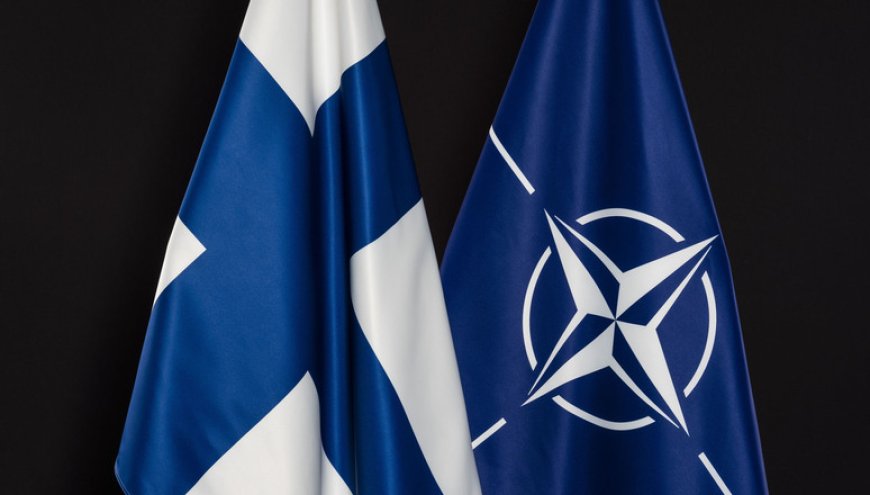From Neutrality to NATO’s Puppet: Is Finland Becoming a Pawn in the USA's War against Russia?

By: A. Mahdavi
In a move that reeks of opportunism, Finland’s President Alexander Stubb has called for a reconfiguration of the United Nations Security Council and the elimination of Russia’s veto power. These proposals are emblematic of a nation that having recently abandoned its historic neutrality to join NATO is now emboldened by its newfound position in the Western military bloc, ready to project influence in a global arena it scarcely understands.
The so-called "Finnish Model" of diplomacy appears to be nothing more than a thinly veiled attempt to curry favor with the United States and NATO, all the while escalating tensions with Russia. By throwing its weight behind a long-debated often disregarded proposal to alter the very architecture of the Security Council Finland's overt ambitions speak to a deeper more troubling trend; the militarization of its foreign policy under the guise of being a peacekeeper. In reality Finland is acting as a pawn in NATO’s larger chessboard against Russia---disguising aggression as reform.
The shift in Finland’s stance post-Ukraine war is dramatic to say the least. Once a paragon of neutrality; Finland has veered sharply into the arms of NATO-- ignoring the inevitable ramifications of such an ominous alignment. This transformation from neutral buffer state to frontline NATO member has been met with predictable outrage from Russia--though it appears Finland is pursuing an aggressive path with alarming vigor. Closing its borders with Russia, Finland seems content to foster division rather than dialogue cutting off not only migrants but any potential for diplomatic rapprochement. It is as if Finland intoxicated by its new NATO status seeks to provoke rather than mediate.
The Finnish government’s actions align disturbingly well with the broader stance of the European Union which has recently ramped up rhetoric hinting at war preparedness. One would think Finland with its historical proximity to Russia would understand the danger of these provocations, but, instead it appears intent on playing a significant role in raising the political and logistical costs for Russia. Meanwhile, while Finland fans the flames of confrontation it conveniently leaves the more substantial geopolitical maneuvers--those involving territorial and military strategy--to its European allies.
Most alarming is Finland’s blatant pursuit of influence under the pretext of UN Security Council reform. The proposal to expand permanent membership to ten members including nations from Asia Africa and South America is in itself not new. What is new however is Finland’s opportunistic claim to spearhead this initiative all the while clearly targeting Moscow. Stubb’s insistence that Russia’s veto power is a remnant of the Cold War is hardly an astute observation but rather an obvious ploy to sideline a geopolitical foe. His assertion that the UN Security Council must act decisively against nuclear threats is a poorly veiled attempt to legitimize further Western pressure on Russia-- masking his administration’s submissiveness and alignment to U.S. interests.
Finland’s sudden zeal to reshape the global order is not born of genuine multilateral concern but rather the ambition to be perceived as a key actor on the international stage. The irony of this ambition cannot be overstated; a country that just a few years ago cherished its neutrality now seeks to be a linchpin in NATO’s ongoing conflict with Russia; while simultaneously advocating for sweeping global reforms. Yet, Finland is walking a dangerous tightrope aware that becoming too dependent on American backing could reduce it to a puppet of U.S. hegemony-- much like Ukraine before it.
This grandstanding does not make Finland a noble champion of international justice but rather an eager participant in a Western geopolitical agenda that risks further deepening global divisions. While the proposal to expand the Security Council’s permanent membership may carry some merit in addressing global power imbalances Finland’s involvement seems less about reform and more about asserting its relevance in an increasingly polarized world. The United States’ quiet support for Finland’s proposals is telling Washington sees Helsinki as a convenient tool to push its own agenda under the guise of a “global consensus.”
However-- one must question Finland’s endgame. Is this the country’s play for long-term global leadership or merely a short-term bid for attention on the international arena ? More troubling still what will be the ramifications if Finland’s ambitions backfire? Will Finland be able to extricate itself from the inevitable consequences of a more confrontational foreign policy with Russia? Can Finland maintain its claimed independence from U.S. dominance or is it fated to become yet another European state subsumed by Washington’s strategic interests?
Ultimately Finland’s hasty departure from neutrality and its reckless attempts to challenge Russia are symptomatic of a broader Western failure to understand the complexities of the global order. By advocating for structural changes to the UN Finland may believe it is shaping a more just international system but in reality it is playing a dangerous game that risks further destabilizing an already volatile world. As the East-West divide deepens Finland’s role as a NATO mouthpiece may cement its position in history--not as a harbinger of peace but as a catalyst for a new era of global polarization. The world must tread carefully in this delicate moment or risk being dragged into an even darker chapter of conflict.













































